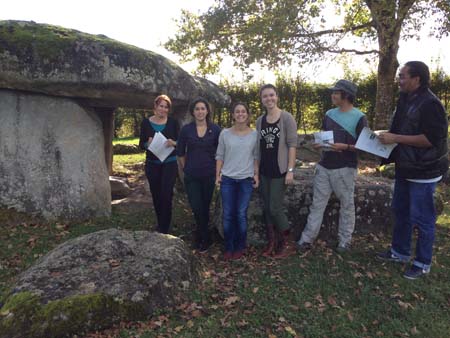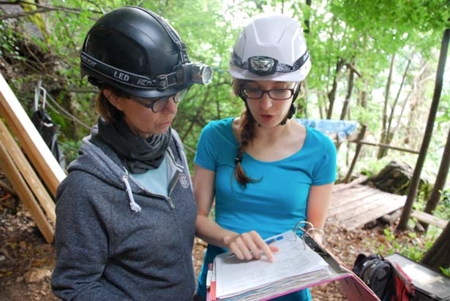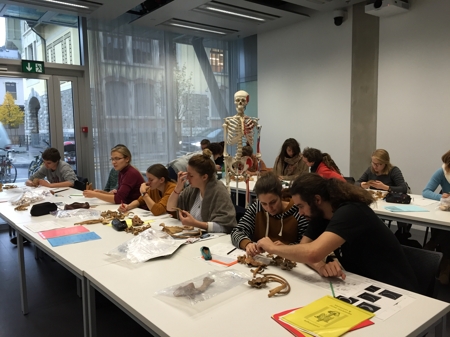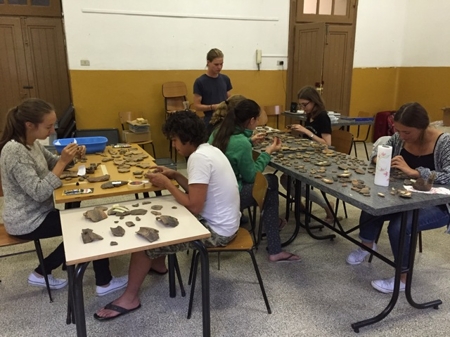Comprehensive and special training
The students are deliberately provided with training opportunities strongly relying on earth sciences and natural sciences. These fields allow to place past human activities in their environmental context. In addition to the teaching of prehistoric archaeology, training is completed by major fields as for example research methodology, palaeoanthropology and archaeozoology.
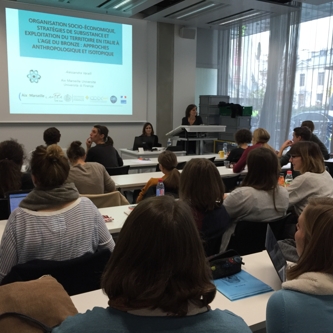
Studies in prehistoric archaeology are organized as follows:
- Master degree in prehistoric archaeology (4 semesters)
- Doctorat degree : Doctorate degree in prehistoric archaeology et Doctorate degree in anthropology and Interdisciplinar doctorate degree (10 semestres)
An education proposed by the Faculty of Letters is equally provided:
Vocational training is based on complex knowledge and skills, providing a wide range of future careers in archaeology. Tailored competencies are developed in distinct fields. Research-based training of the future archaeologists thus appears to be essential.
In our view, after five years of training, the students will have acquired special (prehistoric archaeology) and comprehensive (scientific spirit) knowledge, once they have obtained their master degree in prehistoric archaeology. Whilst the bachelor studies will provide fundamental knowledge and methodological bases, the master studies offer specific knowledge and scientific spirit. The educative importance of the master’s thesis has to be emphasized: the student has to go through the process of the work of a scientist and archaeologist: definition of a problem, data collection, analysis, interpretation, scientific writing and publishing of the results.
